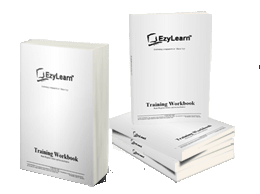You may have some better understanding of the legal aspects to running your own small business, but would you be able to effectively protect your back?
Your business is sure to have intangible assets alongside the tangible ones (that is, your computer, your bricks and mortar office, and so forth).
Intellectual property has to do with the ownership of these ideas and concepts.
Would you know how to identify, let alone put a value on, the intangible assets you have?
As the small business owner you must carry out measures safeguarding your intangible assets, and that equally, ensure you don’t infringe the intellectual property rights of other businesses. Intangible assets may be protected under a range of intellectual property legislation, including patents, trademarks, domain registration, designs and copyright, as well as protection under other techniques, such as common or contract law.
—VALUING THESE WILL LATER LINK TO INCORPORATION INTO THE BUSINESS PLAN AND RISK ASSESSMENT STRATEGY
We’ll help you:
- Identify what your intangible assets might be and help to value them
- Select the types of protection available for such assets
- Calculate the likely costs, risks and benefits of potential types of protection available
- Avoid infringing upon the intellectual property of others and help you monitor the marketplace to see that the same doesn’t happen to you
- Communicate the importance and nature of the above to all relevant staff members and ensure this information remains privy to only those inside your business
- Identify options for exploiting and commercialising your intangible assets
What you’ll learn:
Ensure your business success by putting all your legal requirements in place prior to start-up. Choose the right structure for your business, whether it be sole trader, partnership or company, consider your options and choose carefully. In this module you walk through the benefits and disadvantages of each structure so that you can start your business under the ‘right’ umbrella. Strategic partnerships and public companies form part of the array of options to move your business on.
We look at business names and ABN with a discussion on validity of registering for GST. There is also discussion on supplementary legal requirements for businesses in certain fields. E.g. hospitality, travel, real estate etc.
How do you protect your ideas? Why you would BRAND a service. How that is achieved? Value of branding. Trademarks etc. Policies as part of branding. If you wish to move your small business into a big business you must have this information.







